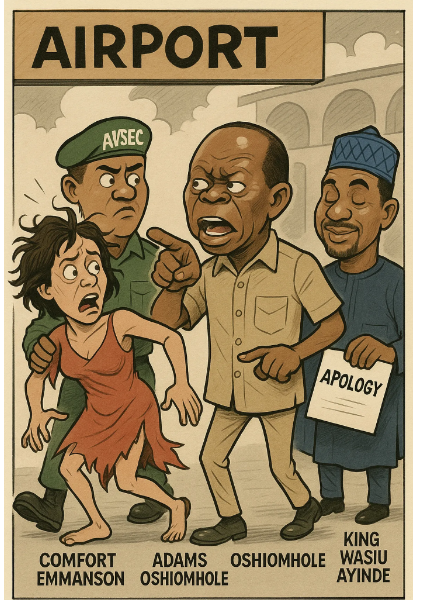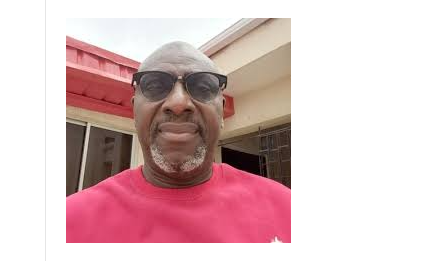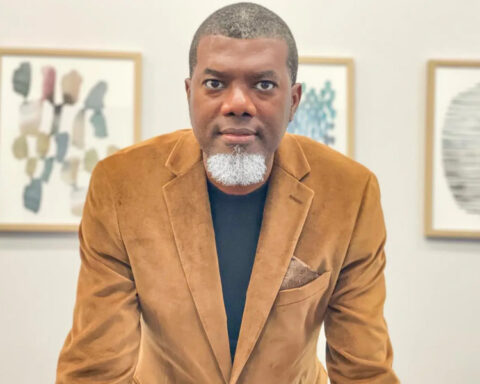By Agbeze Ireke Kalu Onuma, AI-KO
I have long stopped following news about the unruly behaviour of my fellow countrymen and women. But when a short yet informative video started making the rounds about a passenger slapping an air hostess and her subsequent humiliation, I had to watch. And the watching was unhealthy.
The video pulsed through Nigeria’s digital veins with the jarring immediacy of a national trauma. Comfort Emmanson, dishevelled, her dress torn and dignity seemingly shredded, half-dragged, half-stumbled through the terminal by Aviation Security (AVSEC) personnel. Her exposed flesh wasn’t just a personal violation; it was a grotesque tableau of a deeper societal rupture. This followed her alleged sustained assault on Ibom Air cabin crew – a violent outburst reportedly triggered by the simple, universal instruction to switch off her mobile phone. The Airline Operators of Nigeria (AON) swiftly announced an indefinite “no-fly” ban and criminal charges, a response met with relief and even applause by many weary of the rising tide of passenger anarchy.
Yet, this decisive action, focused solely on Emmanson, acted like a spotlight illuminating only one corner of a vast, darkened stage. It conveniently obscured a far more insidious pattern, a pattern woven with threads of…
This stark contrast isn’t mere coincidence; it’s the very anatomy of Nigeria’s crisis of civility and responsible citizenship, laid bare at various airport incidents. These incidents form a trifecta of airport dramas that, while seemingly isolated, reveal a deeper malaise in our national psyche. Each incident is a mirror reflecting the breakdown of civility, the erosion of institutional integrity, and the widening chasm between the powerful and the powerless. They are not just airport stories; they are metaphors for Nigeria’s civic decay, a nation teetering on the brink of normlessness.
The rationale behind such disparate treatments exposes a societal irresponsibility that has become endemic. When the powerful act out, their actions are often excused or minimized, shielded by networks of influence and the inertia of a system reluctant to hold elites accountable. Meanwhile, ordinary citizens like Emmanson face swift and public censure, their moments of weakness amplified and punished with disproportionate severity. This selective enforcement of consequences is a glaring symptom of a society where justice is transactional and civility is conditional.
Public commentators have not been silent on this. Many have pointed out that these incidents are symptomatic of a broader failure in nurturing a culture of respect and accountability. Social critic Idowu Kehinde recently remarked that “our airports have become stages where Nigeria’s class and power dynamics play out with brutal clarity, revealing who is above the law and who is beneath it.” Others have lamented the normalization of entitlement and impunity, warning that without systemic reforms, these episodes will continue to multiply, corroding the social fabric.
From my perspective, this is not just about isolated acts of misconduct but about how a society chooses to respond to them. The glaring disparities in consequences highlight a dangerous precedent: that civility and responsibility are privileges reserved for the few, not obligations for all. This undermines trust in institutions and fuels cynicism among citizens who see fairness as an illusion rather than a principle.
In reflecting on these events, I am aware that restoring dignity and respect in public life requires more than punitive measures against individuals. It demands a collective reckoning with the values we uphold and the systems we tolerate. Until Nigeria confronts these underlying fractures – where power shields misconduct and ordinary citizens bear the brunt – the cycle of airport dramas and societal decay will persist.
These incidents are a call to action for all Nigerians. They challenge us to move beyond outrage and spectacle toward building a culture where accountability is universal, respect is foundational, and civility is the norm, not the exception. Only then can we hope to heal the ruptures laid bare in those moments of public humiliation and reclaim the dignity that belongs to every citizen.
The Anatomy of Anarchy: Incidents Exposed
The incident aboard Ibom Air Flight Q9 303 on August 10, 2025, was far more than an individual lapse in judgment; it was a microcosm imploding. Reports suggest Emmanson’s refusal to comply with a fundamental safety instruction – switching off her phone – escalated rapidly. When a fellow passenger dared to intervene, a torrent of verbal abuse ensued. But the descent into chaos truly began upon landing. What followed, as described by the AON, was a “sustained violent attack.” Crew members were physically assaulted, a purser’s wig was torn off in a shocking act of aggression, and most chillingly, an attempt was made to wield a fire extinguisher – an object whose misuse could have transformed a contained incident into a catastrophic event, potentially grounding the aircraft or worse. The potential consequences were unthinkable, turning a routine flight into a potential disaster scenario. The swift ban was a necessary response to such egregious endangerment.
Contrast this with the experiences of the privileged. Senator Adams Oshiomhole, a sitting senator and former governor, arrived late for his flight and allegedly disrupted boarding procedures for Air Peace. He later defended his actions on national television, claiming he was protesting unfair treatment, yet faced no formal investigation or consequence. Similarly, Fuji maestro KWAM 1, a cultural icon with deep connections, reportedly disrupted a ValueJet flight – blocking the aircraft’s departure over a dispute involving a flask suspected to contain alcohol, actions causing significant delay and distress. Pilots were suspended, yet the musician allegedly threatened the airline’s CEO. His resolution? An apology letter. Case closed. The outcome disparity is stark: Emmanson was banned for life by Ibom Air, blacklisted by all AON member airlines, and remanded at Kirikiri Correctional Centre. The powerful walked away with apologies and interviews; the powerless was dragged, exposed, and imprisoned.
Institutional Failure: The Enablers of Impunity
The response to Emmanson became its own scandal, peeling back another layer of institutional decay. The AVSEC personnel, tasked with securing the aircraft and its occupants, appeared woefully unprepared to handle the situation professionally during the assault. Their subsequent actions – the rough, public dragging, the exposure of her body – transformed necessary apprehension into a spectacle of dehumanization. Aisha Yesufu’s condemnation of this as sexual harassment struck a vital chord, echoed by the Nigerian Bar Association (NBA) which called it degrading and unlawful. This performative brutality, captured for the world to see, stood in stark, shameful contrast to their apparent inability to prevent or swiftly contain the initial violence. It was less about enforcing order and more about exacting a humiliating punishment, broadcast live. The AON’s own statement, acknowledging the incident “exposes vulnerabilities in AVSEC’s security response,” felt like a monumental understatement. It revealed a force potentially better equipped for public shaming than effective, dignified crowd control or de-escalation in the high-stakes environment of aviation.
This brings us to the deafening silence surrounding the alleged transgressions of Senator Oshiomhole and KWAM 1. The Nigerian Civil Aviation Authority (NCAA), guardian of the skies, publicly champions “safer skies.” Yet, its explanation for the disparity – Ibom Air pursued legal action, ValueJet did not – only underscores the problem. Enforcement of rules should not depend on the whims of private entities; it should be consistent, impartial, and rooted in law. This selective enforcement is the bedrock of elite impunity. As Aisha Yesufu astutely observed, “Depending on your social standing… that will determine the kind of justice given to you… Comfort doesn’t have somebody she can make phone calls with, and that’s why they’re remanding her.”
This isn’t just inconsistency; it’s the blatant operation of an unwritten exemption clause embedded in Nigeria’s social and institutional fabric, epitomized by the infamous phrase: “Do You Know Who I Am?” – the verbal weapon of choice for those who believe their status exempts them from rules. When political access (Oshiomhole’s entrenched position) or cultural celebrity status (KWAM 1’s proximity to power) functions as an automatic “get-out-of-jail-free” card, the entire concept of civic responsibility becomes a burden borne only by the ordinary citizen. Rules become suggestions for the connected. This visible double standard actively corrodes the social contract, teaching the populace that power and connections, not law or civility, are the ultimate arbiters of consequence.
This culture of impunity thrives in the fertile ground of systemic institutional failure. The NCAA, too often, seems skewed towards managing consumer complaints like flight delays – important, but not the core existential threat posed by systemic safety negligence or the rising tide of passenger violence enabled by weak enforcement. Reports of a 75% pass rate for critical personnel exams pale against global benchmarks demanding near perfection. Skill gaps fostered by inadequate training or lax standards are vulnerabilities waiting to be exploited. The AVSEC debacle is merely the most visible symptom: chronic underfunding, outdated protocols, and a lack of rigorous, continuous professional training focused on de-escalation and dignified restraint. The AON’s call for FAAN to “review and tighten security” was a necessary but damning public admission of this failure.
Cultural Complicity and the Ghost of History
Perhaps most corrosive is the pervasive cultural complicity. Airlines, operating in a pressure cooker environment, often develop an ingrained habit of appeasing VIPs. Cabin crew, trained to enforce safety rules uniformly, find themselves subtly or overtly pressured to look the other way when a “Big Man” ignores the seatbelt sign or keeps his phone on. This daily, visible reinforcement of inequality – where rules stretch for some and snap for others – breeds resentment among ordinary passengers and emboldens the entitled, creating a tinderbox where incidents like Emmanson’s become more likely. It signals that civility is negotiable, contingent on who you are. This lived experience is common: watching someone in agbada bypass security queues, seeing a politician’s daughter granted entry where others are denied for dress code – the rules are elastic. Civility is not just about politeness; it’s about respect for others, for institutions, and for shared spaces. It’s the glue that holds society together. In Nigeria, civility is dying a slow death, replaced by chaos.
The shadow of history looms large over these contemporary failures. The ghost of Dana Air Flight 992, which plunged into a Lagos suburb in June 2012 claiming 159 lives – the deadliest aviation disaster in African history – serves as a chilling reminder of where systemic rot ultimately leads. The official investigation revealed a horrifying chain of institutional failure: improperly maintained engines, pilot negligence, and a shocking breakdown in communication where pilots reportedly dismissed critical engineering warnings due to personal animosity, ignoring clear signs of catastrophic engine failure for 17 minutes. While technical reforms followed, the cultural malaise – the normalization of cutting corners, ignoring procedures, dismissing expertise, and prioritizing ego or convenience over collective safety – evident in the Dana cockpit, finds its disturbing echo in today’s epidemic of passenger anarchy and institutional paralysis. The entitled passenger ignoring safety instructions, the VIP bullying staff, the security personnel prioritizing humiliation over protocol, the regulator focusing on optics over core safety enforcement – these are all facets of the same culture of indiscipline and impunity that contributed to Dana Air 992. Until this underlying culture, which disrespects rules and prioritizes the individual (especially the powerful individual) over the collective safety and dignity, is fundamentally addressed, the spectre of another preventable disaster remains terrifyingly real.
Rebuilding the Civic Fuselage: Solutions for Safer Skies and Ground
So, how do we begin to rebuild the civic fuselage and ground the culture of impunity? The solutions must be as robust and multi-faceted as the problem itself, moving beyond reactive bans to systemic change and cultural reorientation:
Institutional Overhaul Demands Courage:
Establish a truly Independent Aviation Ombudsman insulated from political and industry pressure, empowered with subpoena power, and mandated to publicly investigate all serious incidents of passenger and crew misconduct, especially those involving VIPs. Its findings and recommended sanctions (including flight bans, fines, and mandatory behavioural training) should be public and binding.
AVSEC requires radical modernization and professionalization:
Significant investment in rigorous, continuous training focused on conflict resolution, de-escalation, and dignified restraint. Equip officers with body cameras for accountability and training. Bring AVSEC under stricter, direct NCAA oversight with clear, enforceable standards and consequences for unprofessional conduct. Create a Unified, Transparent National “No-Fly” List managed by an independent body based on clear, publicly available criteria (severity, endangerment, repeat offences), applying uniformly across all Nigerian carriers. If Emmanson merits a lifetime ban, then credible reports of Oshiomhole and KWAM 1’s unruly behaviour should place them on the same list. Consistency is the antidote to selective justice. Agencies like the NCAA must be empowered to enforce rules uniformly, regardless of status, with clear protocols publicly available.
Cultural Resets Require Sustained Effort:
Launch a sustained, high-profile National Civility in Aviation Campaign. Partner with Nollywood, musicians (including KWAM 1, should he choose redemption), and influencers to create compelling content dramatizing the severe consequences of air rage for everyone onboard. Normalize naming violators publicly upon conviction. Implement Elite
Accountability Mechanisms:
Mandate airlines to report all VIP misconduct directly to relevant oversight bodies – the National Assembly’s Ethics Committee for lawmakers, traditional councils, professional bodies. Legislators harassing staff should face swift censure, suspension, or expulsion. Actively Celebrate and Reward Professionalism and Civic Courage. The Ibom Air purser who showed restraint deserves recognition. Highlight stories of exemplary crew and supportive passengers. Make civic courage go viral.
Civic Education is crucial:
Schools must teach civic responsibility. Media campaigns should promote respect for public spaces and institutions. Citizenship is not just a legal status; it’s a moral contract demanding responsibility, accountability, and participation, not mere survival.
Empowering Passengers and Ensuring Redress:
Develop a simple, anonymous In-Flight Reporting App linked directly to FAAN’s security command centre, enabling real-time alerts for threatening behaviour. Explore frameworks enabling Passenger Class-Action Rights for significant, demonstrable losses (missed connections, financial penalties) directly attributable to disruptions caused by unruly behaviour or VIP appeasement, holding airlines financially liable.
Ensure robust Whistleblower Protection with guaranteed anonymity and protection, potentially through independent ombudsman offices at key public hubs. Citizens must have access to legal aid when wronged by institutions. Promote stories of everyday Nigerians upholding civility and integrity, celebrating humility and responsibility over wealth and fame.
Conclusion: Choosing a Different Path
Comfort Emmanson’s core transgression wasn’t solely the violence; it was the toxic assumption – tragically widespread – that the rules are for others, that individual whim trumps collective safety and decorum. Yet, in meting out harsh punishment to her while allowing the alleged transgressions of Oshiomhole and KWAM 1 to vanish into the ether, Nigerian institutions didn’t just fail Emmanson; they actively validated that very same toxic assumption for the powerful. They reinforced the lesson that connections are a shield against accountability. True civility, the kind that fosters responsible citizenship and genuine safety, flourishes in the consistent, unwavering application of consequence, regardless of status.
Our collective safety aloft, and indeed the health of our society on the ground, hinges on this fundamental shift. Our skies will remain turbulent, a reflection of our societal discord, until justice itself is guaranteed a first-class seat, immune to downgrades based on connections. The wreckage of Dana Air Flight 992 is more than a memorial; it’s a grim prophecy of what awaits a society that continually papers over deep-seated cultural and institutional decay. Nigeria’s choice today isn’t merely about punishing one unruly passenger; it’s about proving, through tangible, consistent action, that citizenship carries inherent responsibilities and that the rule of law has meaning beyond the reach of privilege.
The dark joke among Nigerians – “May Nigeria Never Happen to You?” – encapsulates the fear and fatigue of a land where rules are optional and dignity disposable. But it doesn’t have to be this way. We can choose a path where citizenship is sacred, civility is expected, and institutions are respected. It starts with us – how we treat others, how we demand accountability, how we refuse complicity in dysfunction. Let these airport incidents be a wake-up call for all of Nigeria. Because if we don’t fix this, the next viral video could be about any of us. Only when justice and responsibility become our lived reality can we truly pull out of the steep dive towards incivility and breathe easy in our shared skies and on our common ground.
©️AI-KO
iagbeze@msn.com



























